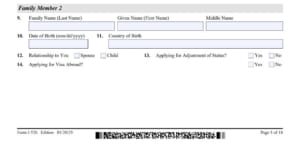The United States Department of State (“DOS”) has ordered all Embassies and Consulates to stop scheduling new appointments for applicants applying for F, M, and J student visas.
In a released cable, DOS Secretary Marco Rubio said that the suspension is in place because DOS plans to expand the screening process of applicants’ social media.
“The Department is conducting a review of existing operations and processes for screening and vetting of student and exchange visitor (F, M, J) visa applicants, and based on that review, plans to issue guidance on expanded social media vetting for all such applicants,” commented Rubio on a signed cable.
“Effective immediately, in preparation for an expansion of required social media screening and vetting, consulate sections should not add any extra student or exchange visitor visa appointment capacity,” Rubio continued.
According to the Associated Press, a DOS official, who spoke on the condition of anonymity, said that the halt is temporary and it does not apply to those who already have their interviews scheduled. It is unclear on how long the hold will last as well as if there will be any exemptions such as those applying for F, M, or J visa renewals as well as those who are eligible for interview waivers.
Affected applicants are encouraged to stay informed and proactive including the following:
- Check Embassy and Consulate websites for regular updates on interview scheduling;
- Remain in communication with your international student office. These offices can help affected applicants with guidance and documentation. Many schools offer late arrival support letters that may help if your F, M, or J visa is delayed. Some colleges and universities also allow students to defer their enrollment to a later term without penalty.
- Be cautious on social media. While social media vetting has been ongoing since 2019, the U.S. government as a whole has been taking a much aggressive approach such as screening for antisemitism.
- Document everything. Save communication records with your school and Embassy or Consulate in the event that delays impact your program start date or immigration status.
For more information and to consult with a U.S. immigration attorney contact us at info@enterlinepartners.com.
ENTERLINE & PARTNERS CONSULTING
Ho Chi Minh City, Vietnam Office
146C7 Nguyen Van Huong St, Thao Dien Ward,
District 2, Thu Duc City
Ho Chi Minh City, Vietnam
Tel: +84 933 301 488
Email: info@enterlinepartners.com
Facebook: Enterline & Partners – Dịch vụ Thị thực và Định cư Hoa Kỳ
YouTube: @EnterlineAndPartnersConsulting
Website: http://enterlinepartners.com
Manila, Philippines Office
LKG Tower 37th Floor
6801 Ayala Avenue
Makati City, Philippines 1226
Tel: +63 917 543 7926
Email: info@enterlinepartners.com
Facebook: Enterline and Partners Philippines
Website: https://enterlinepartners.com/language/en/welcome/
Copyright 2025. This article is for information purposes only and does not constitute legal advice. This article may be changed with or without notice. The opinions expressed in this article are those of Enterline & Partners only.




